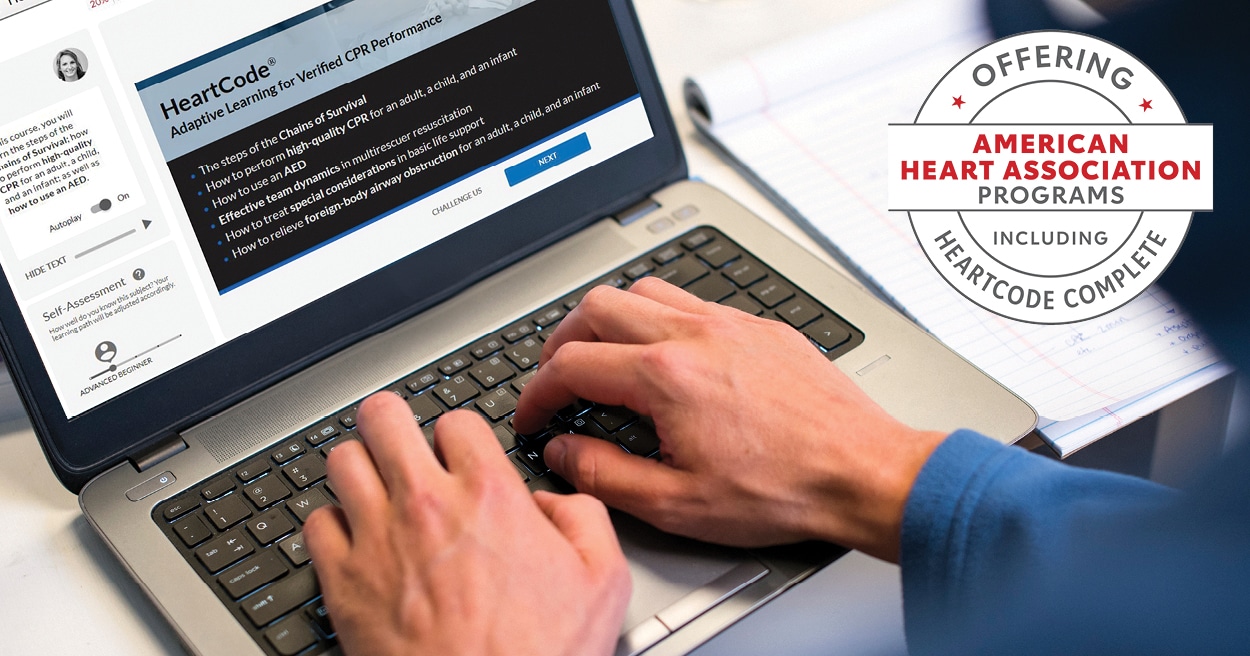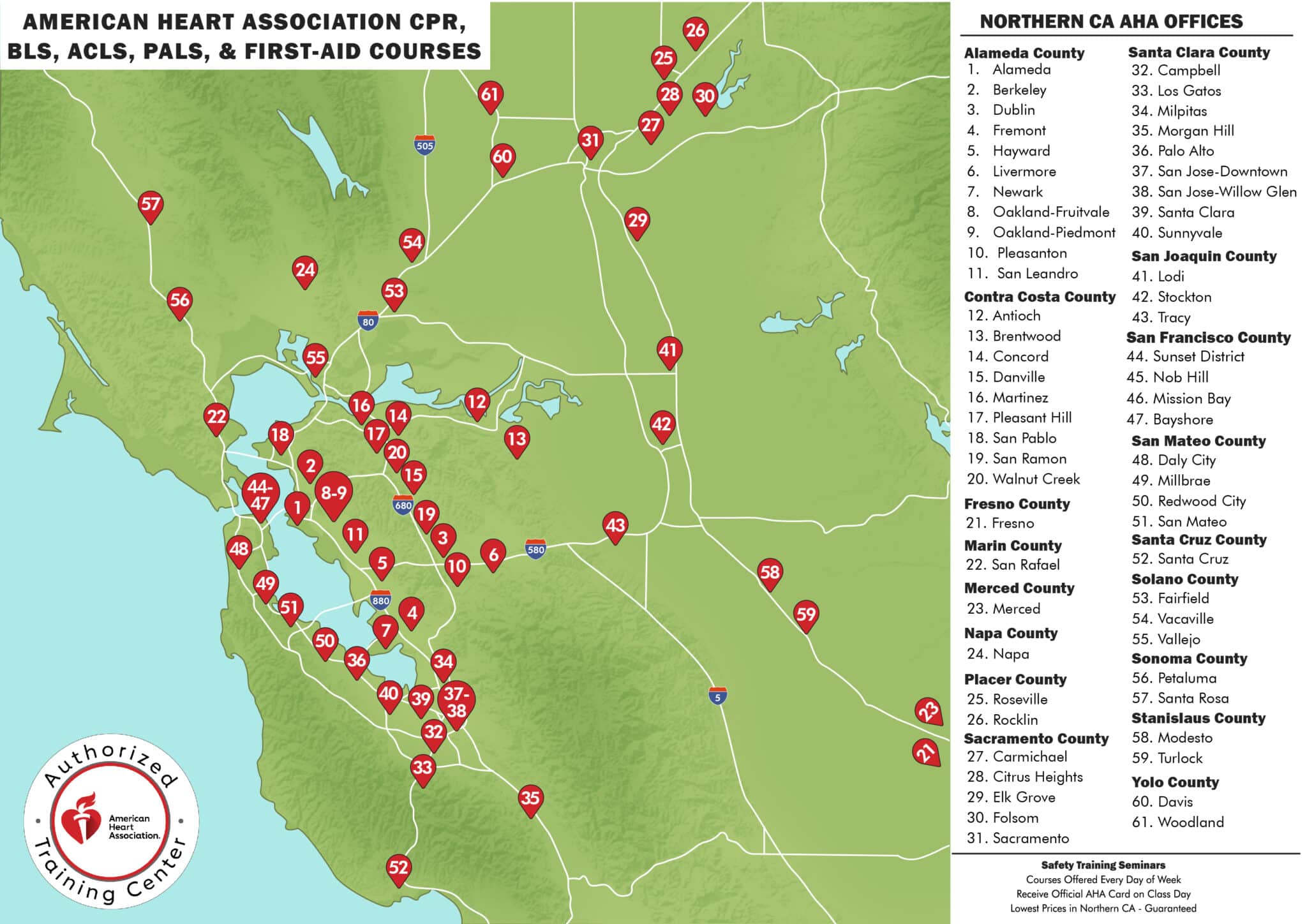American Heart Association© PALS Certification Classes in Fremont

American Heart Association© PALS
Course Name: PALS Pediatric Advanced Life Support (Initial or Renewal)
Online Course Length: 3-4 hours (At your home.)
Skills Testing: 30-40 minutes (At one of our over 60 testing sites.)
Price: $290 (This includes the online PALS course, skills testing, & PALS card.)
Certification: American Heart Association© PALS certification card.
When: PALS classes are offered Monday – Sunday from 7 am to 6 pm
Card Issuance: You will receive the PALS certification card on day of class.
Add ons available: ACLS, BLS, First-aid, Opioid, or Bloodborne Pathogens
Low Price Guranetee: Lowest Prices in Northern CA. Price matching policy.
View PALS Courses in Fremont & Other Cities Near You
Store locator is loading from StoreRocket Store Locator App..

Enhancing Pediatric Emergency Care: American Heart Association PALS Classes in Fremont
In the realm of pediatric emergency care, proficiency in Pediatric Advanced Life Support (PALS) is paramount. Fremont, a vibrant city in California, recognizes the importance of equipping healthcare professionals with the latest life-saving techniques for pediatric patients. The American Heart Association (AHA) PALS classes offered in Fremont are a vital resource for medical personnel seeking to enhance their skills and provide optimal care for pediatric emergencies.
The Importance of PALS Training
PALS is a comprehensive program designed to equip healthcare providers with the knowledge and skills necessary to effectively manage pediatric emergencies. These emergencies, which can range from respiratory distress to cardiac arrest, require specialized care and swift intervention to ensure positive patient outcomes.
In Fremont, where medical facilities cater to a diverse pediatric population, PALS training is indispensable. Whether in hospitals, clinics, or pre-hospital settings, healthcare providers must be prepared to manage pediatric emergencies with confidence and competence.
Tailored Curriculum for Various Skill Levels
PALS classes in Fremont are designed to accommodate a diverse audience, including physicians, nurses, paramedics, and other healthcare professionals. The curriculum is tailored to meet the specific needs and skill levels of participants, ensuring that each individual receives relevant and effective training.
Novice learners begin with foundational concepts such as pediatric assessment and basic life support principles before advancing to more complex topics such as advanced airway management and pharmacology. Experienced practitioners benefit from scenario-based simulations and case studies that enhance decision-making and leadership skills in pediatric emergencies.
Interactive Learning Environment
AHA PALS classes in Fremont emphasize interactive learning methodologies to enhance retention and application of knowledge. Participants engage in hands-on simulations, group discussions, and real-time feedback sessions to simulate real-world pediatric emergencies.
Instructors encourage active participation and open dialogue, creating a supportive learning environment where questions are welcomed, and discussions are encouraged. This interactive approach not only reinforces theoretical concepts but also builds confidence in applying PALS algorithms effectively.
Simulation Technology: Bridging Theory and Practice
Simulation technology plays a vital role in PALS training in Fremont. Simulation centers equipped with advanced manikins and monitoring equipment replicate pediatric clinical environments with remarkable fidelity.
Participants are immersed in realistic scenarios that challenge their clinical reasoning and procedural skills. From managing pediatric cardiac arrest to coordinating a team response for a critically ill child, simulation exercises provide invaluable hands-on experience without compromising patient safety.
Continuous Professional Development
In Fremont, PALS certification is not a one-time achievement but a commitment to lifelong learning. The medical landscape is constantly evolving, necessitating ongoing education and skill refinement. The AHA offers various avenues for continuous professional development, including refresher courses, online modules, and advanced certifications.
Moreover, Fremont’s medical institutions prioritize a culture of learning and quality improvement. Regular pediatric mock codes, debriefing sessions, and interdisciplinary training opportunities ensure that healthcare teams remain agile and proficient in PALS protocols.
Impact on Pediatric Patient Care
The ultimate measure of PALS training’s efficacy lies in its impact on pediatric patient outcomes. In Fremont, healthcare providers equipped with PALS skills are better prepared to respond to pediatric emergencies promptly and effectively. Timely interventions, such as pediatric advanced airway management and medication administration, can significantly improve outcomes for critically ill children.
Furthermore, PALS-trained professionals exhibit greater confidence and teamwork, fostering a culture of safety and excellence in pediatric patient care. This translates into tangible benefits for the community, with improved survival rates and reduced morbidity associated with pediatric emergencies.
Conclusion
American Heart Association PALS classes in Fremont epitomize excellence in pediatric emergency medical education. From tailored curriculum and interactive learning environments to cutting-edge simulation technology and continuous professional development, these classes empower healthcare providers to deliver superior care to pediatric patients when it matters most.
As Fremont continues to prioritize pediatric health and safety, investing in PALS training remains a cornerstone of its commitment to excellence in pediatric emergency care. By equipping its medical workforce with the skills and knowledge to tackle pediatric emergencies head-on, Fremont stands at the forefront of pediatric healthcare, saving young lives one heartbeat at a time.
FAQs
Who should attend PALS certification classes in Fremont?
PALS certification classes are primarily designed for healthcare professionals who are involved in the management of pediatric patients, including pediatricians, emergency physicians, nurses, paramedics, and respiratory therapists.
How long does a PALS certification course typically last?
PALS certification courses usually span over two days, with a combination of didactic instruction, skills practice, and simulated scenarios to ensure comprehensive learning and skill mastery.
Is there a renewal requirement for PALS certification?
Yes, PALS certification is typically valid for two years, after which healthcare professionals are required to undergo PALS renewal courses to maintain their certification.
